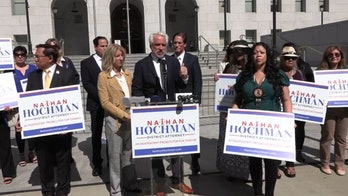
The 155-foot yacht Privacy owned by golfer Tiger Woods is seen at its dock at the Old Port Cove Marina in North Palm Beach, Florida December 16, 2009.(Reuters)
For the super-wealthy -- or the merely very rich -- struggling to cope with their lavish lifestyles, 2010 may indeed prove, in morbid terms, to be a "good" year to die.
That's because the top tax rate for estates valued at more than $7 million, which is currently 45 percent, drops to zero next year. In 2011, it will be resurrected at the higher rate of 55 percent for estates valued at more than $1 million.
"It's not just a slight marginal change," said Tom Ochsenschlager, vice president of taxation for the American Institute of Certified Public Accountants (AICPA.) "It's some very wealthy people will suddenly have a huge interest in this and they're the people that will be making changes to their estates and doing a lot of tax planning."
Each year, some 5,500 people in America are subjected to the estate tax. But next year, changes in the capital gains tax will further complicate estate planning as will likely congressional action.
The House has passed an extension of current law and the Senate is set to take up the issue next year.
Democratic leaders, who support the estate tax, could make a new law retroactive to January 1 -- a move likely to lead to legal challenges.
"Say they pull the plug on January 2nd, and the individual does pass away. They did that in anticipating that they were not going to pay an estate tax," Ochsenschlager said. "And now all of a sudden Congress retroactively imposes an estate tax. You can bet your dollar that those people are going to be in the courts saying, 'They can't do that!'"
Congress levied the first estate tax in 1916. But the pending changes have resurrected timeless and irresoluble debates between liberals, who favor income redistribution as a means of righting economic injustices and conservatives who argue a dollar earned should be a dollar kept.
"People should get ahead on their own merit, not based on the wealth of their parents," said Lee Farris, a senior organizer on estate tax policy at United for a Fair Economy. "And that's a core principal on which the American nation was founded: a belief in a meritocracy, not the belief in people who win the genetic lottery."
"This is not about the super rich; this is about the guy who runs a grocery store, about the professional who invests and saves wisely, the person with a couple millions dollars in a bank account, not a couple of billion dollars."
Fox News' James Rosen contributed to this report.




